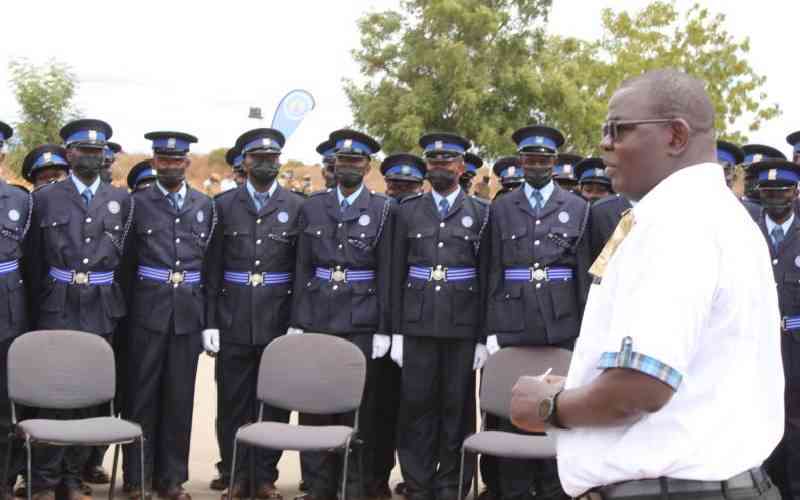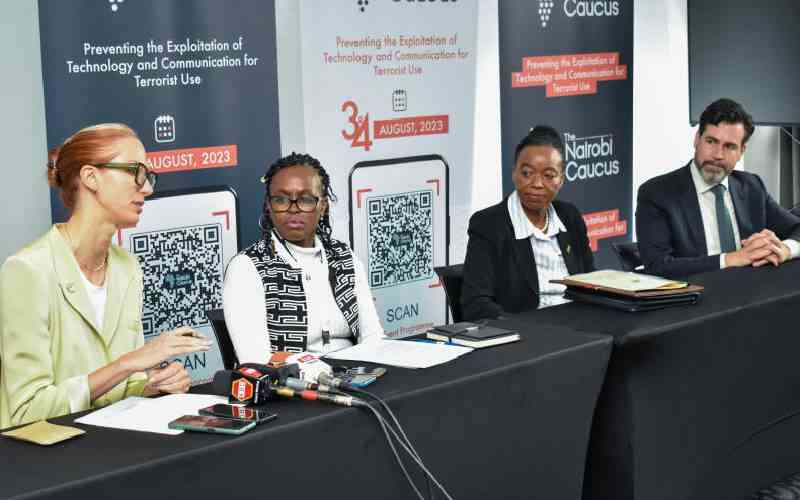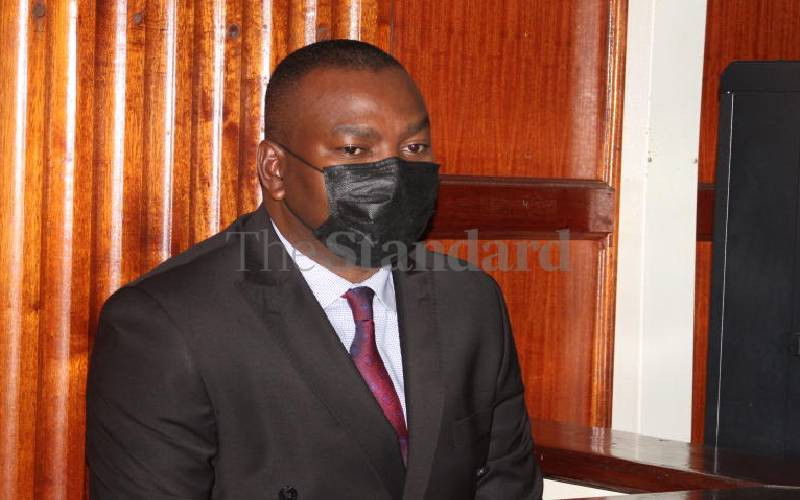 |
|
Media Owners Association Chairman Sam shollei. |
Media industry players have criticised the proposed security amendment Bill 2014, saying it was a threat to free media.
The stakeholders in a press briefing Monday expressed concern that the draft law would be debated and passed in Parliament on Thursday, thus stifling media freedom in Kenya.
They were drawn from the Media Council of Kenya (MCK), Media Owners Association (MOA), Kenya Editors Guild, Kenya Correspondents Association and Kenya Union of Journalists.
"The proposed laws are retrogressive and cannot be said to conform to the requirements of a truly progressive, open and democratic society," MCK Chairman Peter Wakoli said.
He said the bill, majorly driven by the Jubilee Government, goes against President Uhuru Kenyatta's promise on the press freedom day conference that his administration would support free media.
He added that proposed changes to Kenya's security laws were against Article 34b of the Constitution which stipulates that the State shall not penalise any person for any opinion or view or the content of any broadcast, publication or dissemination.
"The Act of Parliament cannot limit what is provided by the Constitution," Wakoli said.
The rule, termed by Wakoli as unrealistic, also applies to journalists who publish pictures of terror victims without police consent.
Wakoli argues that the piece of law is against the 2010 constitution as it creates a parallel body to regulate the media.
He said the State is creating an illegal licensing regime against the Kenya Information Communications Act which mandated the Communications Authority (CA) to control broadcasting enterprises.
"It is unconstitutional and illegal to add a second layer of licensing procedures by requiring broadcasting firms to secure a permit from the National Police Service. The work of the media houses should be left to professionals," said Wakoli.
MPs last week voted to allow the legislation to go forward for a third and final phase of the legislative process and the August House adjourned until February, but Speaker Justin Muturi called for a special sitting to discuss the proposal.
The Uhuru-Ruto led Government has been under sharp criticism over security lapses since last year's attack on the Westgate shopping mall in Nairobi by Al-Shabaab militants in which at least 67 people were killed.
Speaking during the same event, MOA Chairman Sam Shollei accused the Government of hiding under terrorism to silence the media in Kenya.
He said there were bodies (MCK and CA) mandated to regulate and discipline media practitioners, adding that the proposed law would engrave the already dented image caused by the attacks.
Stay informed. Subscribe to our newsletter
Limited liberty
"We do not support the acts of terrorism and if we limit our liberty as a country then they will still have won. Parliament should not allow these laws to pass through as they will take us years back in terms of democracy and development," he said.
He noted there were very scarce cases where the media had carried gory images of terror, saying this alone could not be used as a reason to bring up the rules.
The hastily offered security bill, he said, would be a source of another legal battle between the media fraternity and the State.
Shollei, who is also Standard Group Chief Executive Officer, said they will be presenting a memorandum to the security committee with a view to striking out contentious segments.
In the said law, those who use social media to praise or incite acts of terrorism could face up to 20 years in prison including publishing photographs of people killed during attacks.
President Kenyatta in his speech during Jamhuri Day celebrations was quoted as saying, "If they cannot control themselves, the law will be used to stop them. Carrying such images causes pain for Kenyans and makes the enemy celebrate."
On the other hand, Uhuru during his inauguration speech had given emphasis to his Government's commitment to freedom of the media.
He was quoted saying, "As a President I will respect the role just as I will champion the right of every Kenyan to speak their mind free of fear of reprisal and condemnation."
Mr Shollei challenged Uhuru to keep his promise to ensure democracy.
"A free media is a catalyst to democracy and development," he said.
 The Standard Group Plc is a
multi-media organization with investments in media platforms spanning newspaper
print operations, television, radio broadcasting, digital and online services. The
Standard Group is recognized as a leading multi-media house in Kenya with a key
influence in matters of national and international interest.
The Standard Group Plc is a
multi-media organization with investments in media platforms spanning newspaper
print operations, television, radio broadcasting, digital and online services. The
Standard Group is recognized as a leading multi-media house in Kenya with a key
influence in matters of national and international interest.
 The Standard Group Plc is a
multi-media organization with investments in media platforms spanning newspaper
print operations, television, radio broadcasting, digital and online services. The
Standard Group is recognized as a leading multi-media house in Kenya with a key
influence in matters of national and international interest.
The Standard Group Plc is a
multi-media organization with investments in media platforms spanning newspaper
print operations, television, radio broadcasting, digital and online services. The
Standard Group is recognized as a leading multi-media house in Kenya with a key
influence in matters of national and international interest.










